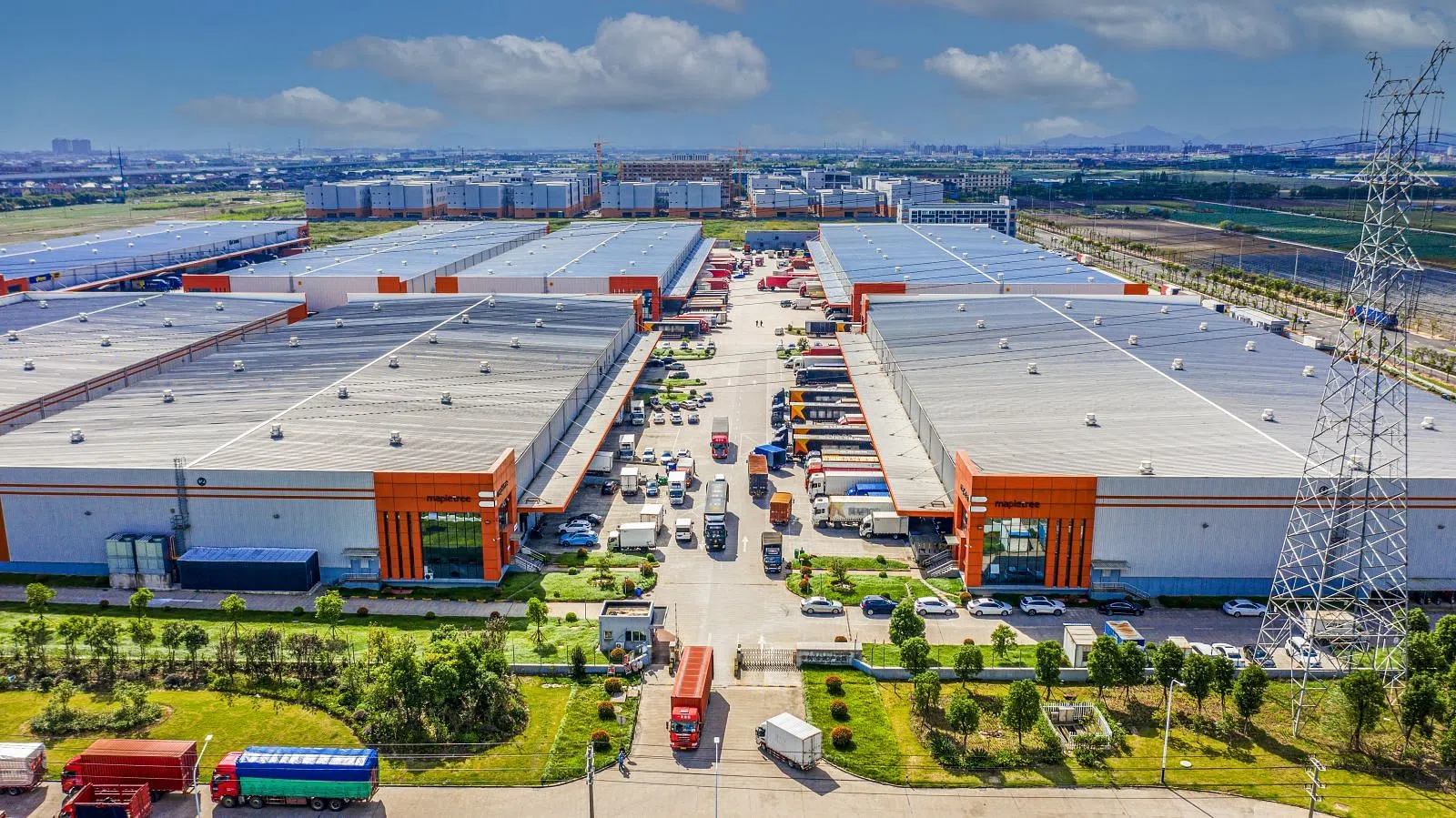Mapletree Logistics Trust to shrink China footprint to rejuvenate portfolio
MAPLETREE Logistics Trust (MLT), whose earnings have been weighed down by an economic slowdown in China, plans to divest about S$1 billion worth of its assets – of which about half will be from China and Hong Kong.
The remaining assets identified for divestment are from Malaysia and Singapore, with a smaller proportion from Australia, Japan and South Korea.
Jean Kam, the chief executive officer of the trust’s manager, said on Wednesday (Oct 23) that these countries have assets which are “no longer relevant” to MLT’s portfolio.
“They don’t fit with our strategy and don’t have much potential for redevelopment,” she said during a briefing on the trust’s latest financial results.
She did not specify a timeline for the divestments’ completion, but said it would depend on market conditions and demand from buyers.
The manager is also waiting for the market to recover so that it can divest assets at a better price particularly in the China and Hong Kong markets. Kam said that it is looking to divest its China assets at an exit yield of around 4 per cent, which will allow it to achieve returns on its assets.
BT in your inbox
Start and end each day with the latest news stories and analyses delivered straight to your inbox.
On Tuesday, the Singapore-listed real estate investment trust, or S-Reit, posted a 10.6 per cent drop in its distribution per unit and a 1.8 per cent dip in revenue for the second quarter ended Sep 30. The Reit manager attributed the fall to higher borrowing costs and lower revenue contributions from China.
“Close to halfway mark” for this year’s divestment target
Elaborating on MLT’s divestment strategy during the briefing, Kam said that about one-third of the S$1 billion divestment target, or around S$300 million, is set to be completed in the current financial year ending Mar 31, 2025.
The Reit manager is “close to the halfway mark” of its divestment target for this financial year. So far, it has divested eight assets amounting to about S$130 million across three countries – Singapore, Malaysia and China.
The remaining half of its divestment target for the period is currently under exclusive negotiations, including one asset in China, said Kam. The manager will announce the divestment of this asset this quarter, she added.
Proceeds from the divestments will help MLT rejuvenate its portfolio, she said.
The CEO added that the manager is actively looking out for accretive acquisitions and sees potential opportunities in emerging markets such as Vietnam and India. It is also eyeing developed markets like Japan, which offers a positive yield spread despite rising interest costs.
Currently, around 40 per cent of MLT’s assets under management are from China and Hong Kong, while Japan makes up 14.6 per cent. Vietnam comprises close to 3 per cent and India makes up 0.7 per cent.
Positive outlook on China
Despite China’s weak property market and domestic consumption, Kam said that MLT’s manager maintains a positive outlook on the country.
It has a large population base that is increasingly urban and has a high savings rate. This could potentially boost demand for properties, said Kam.
“So I think in the long term, (China) still offers very healthy economic fundamentals, and China still remains an important market for MLT,” she said.
The manager was also upbeat on the outlook for MLT’s rental reversions in China. The Reit’s portfolio achieved positive rental reversions across most markets in Q2, except for China, which registered negative rental reversion of minus 12.2 per cent.
James Sung, head of asset management at the Reit manager, said that he expects rental reversions in China to “hover” around its current level for the next two quarters before improving towards a negative single digit.
However, when the rental reversions would become positive is “anybody’s guess”. He said that factors such as consumer sentiment and economic support from the Chinese government would influence any uptick in reversions.
Units of MLT closed down 0.7 per cent or S$0.01 at S$1.40 on Wednesday, after the results briefing.

